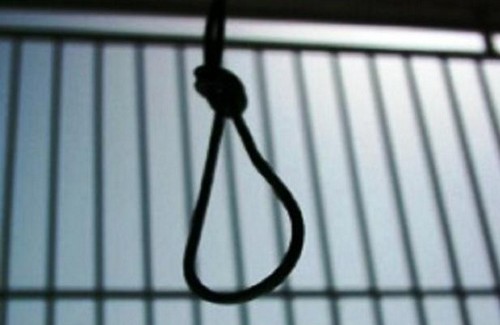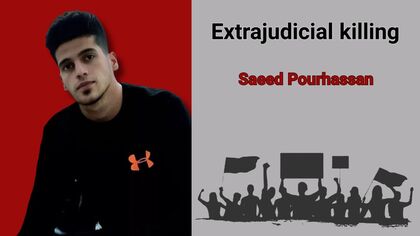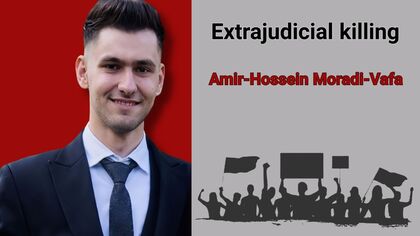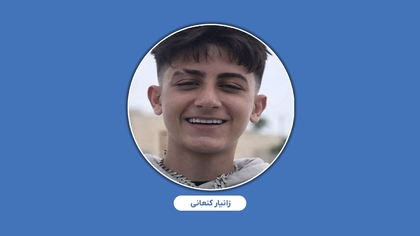Little Hope for Kurdish Political Prisoners in Iran
12:27 - 14 March 2012

KURDPA - Rahim Mahmoudi, the head of the Council for Defending Political Prisoners in Iran, said that due to the lack of free media in Iran, there is no correct estimate of the number of Kurdish political prisoners in Iranian jails.
However, their rough estimate is that nearly 250 Kurdish political prisoners are being held in confinement by the Islamic Republic.
Arez Andaziyari, director of the Kurdish Federation of Political Prisoners in Iran, believes the number of political prisoners in Iran is higher than reported.
“Due to the lack of civil society organizations and free media, we cannot know for sure the real number of Kurdish political prisoners in Iran, but according to Kurdish human rights organizations in Europe and Iraqi Kurdistan, there are around 1,000 Kurdish political prisoners.”
Mahmoudi’s council was formed in the Kurdish areas of Iran in 2007 to defend the rights of political prisoners and convey their cases to international human rights organizations.
They have two main centers, one in Iraqi Kurdistan and the other in Norway. The council defines a political prisoner as “a person who has been imprisoned by the ruling authorities due to his/her different views and opinions.”
Iranian law does not consider many prisoners as political prisoners. They are often charged with “anti-revolution” or “anti-national security” activities.
The most common label given by Iranian judicial authorities is “enemy of God” or “enemy of the revolution.”
Most Kurdish prisoners are victims of their political activities and opinions.
“They are around 250 political prisoners and many of them are kept in Wurme Prison,” he said. “Thirteen of them have been sentenced to death.”
The Iranian authorities executed Farzad Kamangar, a Kurdish teacher and human rights activist, in 2010 and his case caused an outcry among international human rights organizations and Kurdish political groups.
Currently, more than a dozen Kurdish activists are on death row in the notorious Evin Prison in Tehran.
Mahmoudi said that political executions began in Iran immediately after the Iranian revolution in 1979 and reached their peak in 1988.
“Now executions are still going on, but in a slower manner and under different pretexts,” Mahmoudi said.
Mahmoudi maintained that, under pressure from human rights groups, Iranian authorities allow Kurdish political prisoners to have lawyers represent them. Mahmoudi said this was not possible in the past.
“The Iranian government is always trying political prisoners for charges of membership in outlawed groups, activities against the government, sabotaging national security, misleading the public opinion or through the penal code article 186 which is related to charges of ‘fighting against God,’” said Mahmudi.
Kamangar was hanged according to the penal code article 186.
Iran is second in the world, after China, for the greatest number of executions. Human rights reports highlight the terrible violation of human rights in Iran, especially of Kurdish activists.
In his latest report last week, Ahmed Shaheed, the United Nations special rapporteur for human rights in Iran, said, “In the prisons of Iran, prisoners are tortured and even raped.”
“Iran is closed to the outside world, therefore we cannot reduce the pain and suffering of those prisoners but, whenever possible, we have passed information on Kurdish political prisoners to international human rights organizations, including their names, the location where they were arrested, the time of their arrest and the reasons for their arrest,” said Mahmudi.
However, their rough estimate is that nearly 250 Kurdish political prisoners are being held in confinement by the Islamic Republic.
Arez Andaziyari, director of the Kurdish Federation of Political Prisoners in Iran, believes the number of political prisoners in Iran is higher than reported.
“Due to the lack of civil society organizations and free media, we cannot know for sure the real number of Kurdish political prisoners in Iran, but according to Kurdish human rights organizations in Europe and Iraqi Kurdistan, there are around 1,000 Kurdish political prisoners.”
Mahmoudi’s council was formed in the Kurdish areas of Iran in 2007 to defend the rights of political prisoners and convey their cases to international human rights organizations.
They have two main centers, one in Iraqi Kurdistan and the other in Norway. The council defines a political prisoner as “a person who has been imprisoned by the ruling authorities due to his/her different views and opinions.”
Iranian law does not consider many prisoners as political prisoners. They are often charged with “anti-revolution” or “anti-national security” activities.
The most common label given by Iranian judicial authorities is “enemy of God” or “enemy of the revolution.”
Most Kurdish prisoners are victims of their political activities and opinions.
“They are around 250 political prisoners and many of them are kept in Wurme Prison,” he said. “Thirteen of them have been sentenced to death.”
The Iranian authorities executed Farzad Kamangar, a Kurdish teacher and human rights activist, in 2010 and his case caused an outcry among international human rights organizations and Kurdish political groups.
Currently, more than a dozen Kurdish activists are on death row in the notorious Evin Prison in Tehran.
Mahmoudi said that political executions began in Iran immediately after the Iranian revolution in 1979 and reached their peak in 1988.
“Now executions are still going on, but in a slower manner and under different pretexts,” Mahmoudi said.
Mahmoudi maintained that, under pressure from human rights groups, Iranian authorities allow Kurdish political prisoners to have lawyers represent them. Mahmoudi said this was not possible in the past.
“The Iranian government is always trying political prisoners for charges of membership in outlawed groups, activities against the government, sabotaging national security, misleading the public opinion or through the penal code article 186 which is related to charges of ‘fighting against God,’” said Mahmudi.
Kamangar was hanged according to the penal code article 186.
Iran is second in the world, after China, for the greatest number of executions. Human rights reports highlight the terrible violation of human rights in Iran, especially of Kurdish activists.
In his latest report last week, Ahmed Shaheed, the United Nations special rapporteur for human rights in Iran, said, “In the prisons of Iran, prisoners are tortured and even raped.”
“Iran is closed to the outside world, therefore we cannot reduce the pain and suffering of those prisoners but, whenever possible, we have passed information on Kurdish political prisoners to international human rights organizations, including their names, the location where they were arrested, the time of their arrest and the reasons for their arrest,” said Mahmudi.



